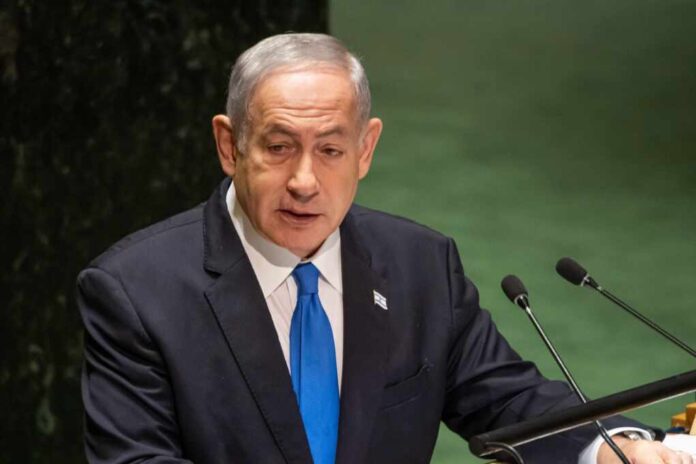
Israel’s long-standing ally, the United States, appears to be shifting foreign policy gears under President Trump’s renewed leadership, leaving Netanyahu’s government increasingly anxious about its position in American strategic calculations.
At a Glance
- Trump’s Middle East envoy Steve Witkoff has criticized Israel for prolonging the Gaza war, highlighting growing tensions between the allies
- President Trump’s upcoming Middle East trip notably excludes Israel, breaking with diplomatic tradition
- The U.S. has made several unilateral moves including a ceasefire with Yemen’s Houthis and direct Hamas negotiations without Israeli involvement
- Trump has dropped demands that Saudi Arabia normalize relations with Israel before advancing Saudi nuclear program cooperation
- Netanyahu faces difficult choices between maintaining his governing coalition and improving strained U.S.-Israel relations
Strained Alliance: Growing Daylight Between Trump and Netanyahu
What was initially viewed as a promising renewal of strong U.S.-Israel ties under Trump’s second presidency has evolved into something more complicated. Several recent diplomatic moves have caught Israeli officials off guard, suggesting a potential realignment in America’s approach to the Middle East. Most notably, President Trump’s planned tour of Middle Eastern countries will bypass Israel entirely, a significant departure from past presidential visits that traditionally emphasized the special relationship between the two nations.
The administration’s Middle East envoy, Steve Witkoff, has directly criticized Netanyahu’s government for extending the conflict in Gaza despite American pressure to conclude hostilities. This public rebuke represents an unusual break from the typically unified front presented by the two allies. Meanwhile, Trump has pursued independent diplomatic initiatives that appear to sideline Israeli interests, including direct negotiations with Hamas for American-Israeli hostage releases and a ceasefire agreement with Yemen’s Houthi militants that failed to address missile attacks on Israel.
— @amuse (@amuse) April 7, 2025
America First Diplomacy Reshapes Regional Dynamics
The White House has undertaken several independent diplomatic initiatives that have caught Israeli leadership by surprise. President Trump announced direct negotiations with Iran, met with Syria’s president while lifting sanctions, and negotiated a truce with the Houthis without addressing their ongoing missile attacks against Israel. These moves signal a potential realignment of American priorities in the region, with Israeli security concerns seemingly taking a back seat to other strategic objectives.
Perhaps most concerning for Israeli leadership is the indication that the U.S. may no longer condition its security pact with Saudi Arabia on normalization with Israel. This represents a significant departure from earlier American positions and potentially undermines one of Netanyahu’s key diplomatic goals in the region. The administration has also pressured Israel to restore humanitarian aid to Gaza following Israeli blockades, further straining relations.
Netanyahu’s Political Dilemma
The Israeli Prime Minister now faces a challenging political calculation. Netanyahu’s governing coalition includes hardline elements who favor continuing military operations in Gaza, but polling indicates significant public support within Israel for ending the conflict in exchange for hostage releases. This domestic balancing act is now complicated by growing pressure from Washington to conclude hostilities.
“If he wants Trump back on his side, then he needs to do things that would cost him the coalition,” explains former Israeli consul-general in New York, Alon Pinkas. “Trump’s not against Israel, but he doesn’t care about Israel.”
This new dynamic represents a significant shift from what many Israeli officials expected from Trump’s return to office. While the relationship between the two nations remains fundamentally strong, with bipartisan American support for Israel still evident, the growing daylight between Trump and Netanyahu suggests a more transactional approach to the alliance. Netanyahu’s options for challenging Trump appear limited given political realities in both countries.
Regional Relationships in Flux
The Trump administration’s apparent shift comes amid changing American public opinion toward Israel. A recent Pew Research Center survey indicates rising unfavorable views of Israel among Americans, including Republicans. This may be influencing the White House calculation about the domestic political cost of pressuring Israel. Concurrently, Trump’s upcoming visit to Saudi Arabia is viewed as a critical test of U.S.-Israel relations, particularly regarding potential agreements that might exclude Israeli interests.
“There is a lot of shock in Israel that the U.S. has different priorities than Israel. Until now Israel had tremendous influence on foreign policy through connections, friendships in the White House, and by leveraging support in Congress, but no longer,” observed Mitchell Barak, a Jerusalem-based political analyst.
Despite these tensions, official statements from both governments continue to emphasize the enduring strength of U.S.-Israel ties. Israeli Foreign Minister Ofir Akunis recently insisted, “The relationship between the current American administration and the Israeli government, headed by President Trump and Prime Minister Netanyahu, is very close, and it’s very good.” However, multiple policy divergences suggest a more complicated reality beneath these diplomatic assurances.

























